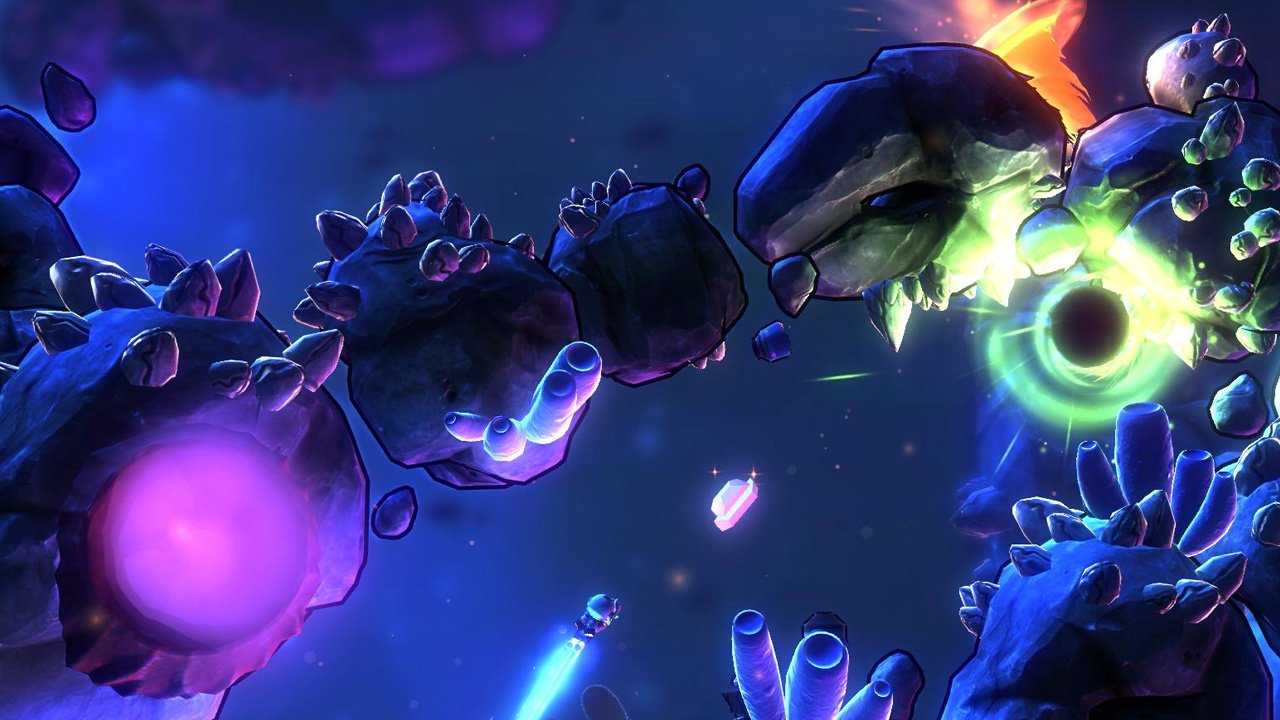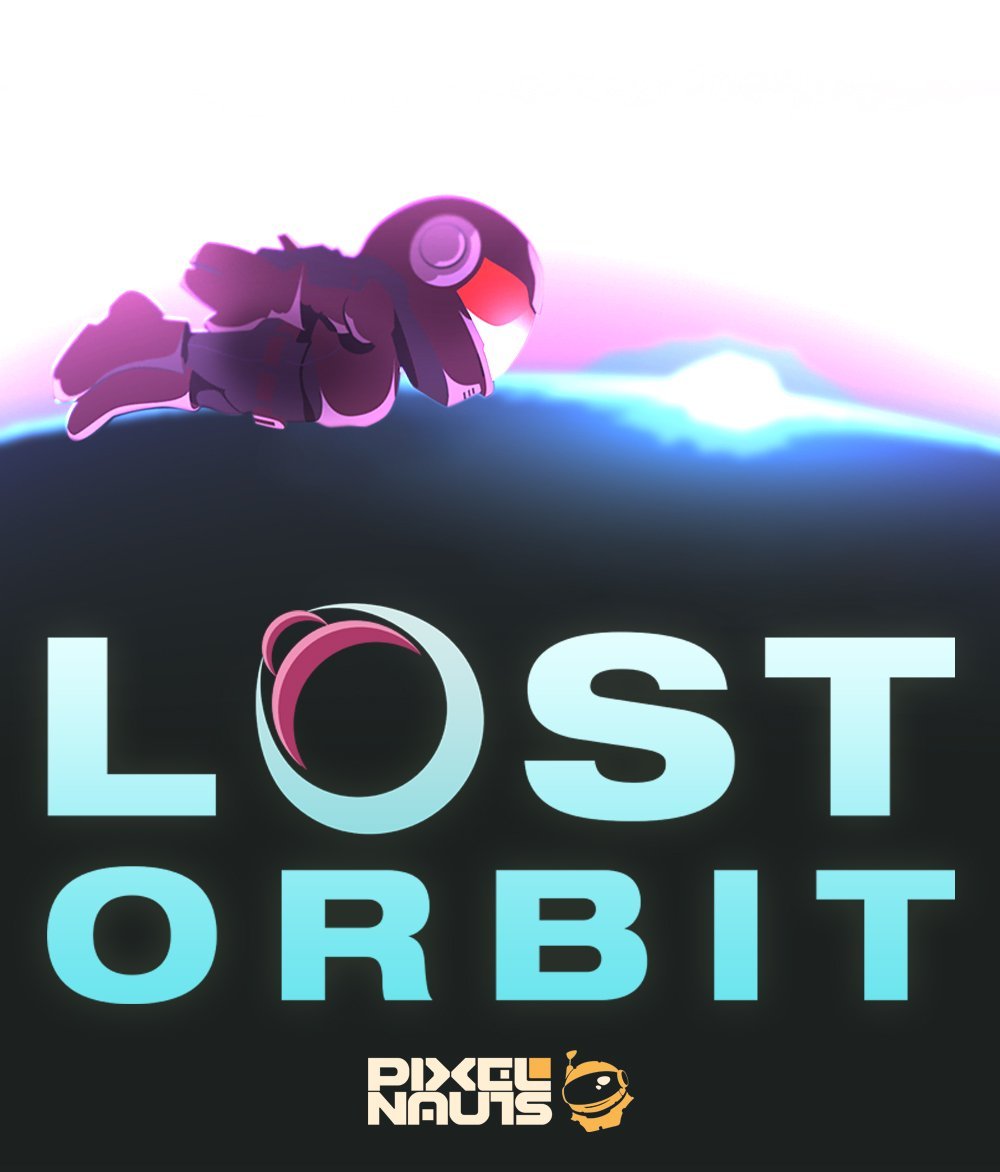That Indie Vibe
Pixelnauts is a small, Canadian indie studio that has been carving out a quirky little identity for itself this console generation. We got a taste of their penchant for the unusual with the PS+ freebie Contrast, and now they’re back with another downloadable game. Only instead of addressing the loss of innocence in childhood through a platformer, they’re tackling existential issues and cross-species friendship in what amounts to an astronaut racing game. And somehow they pulled it off.
Asteroids & Pathos
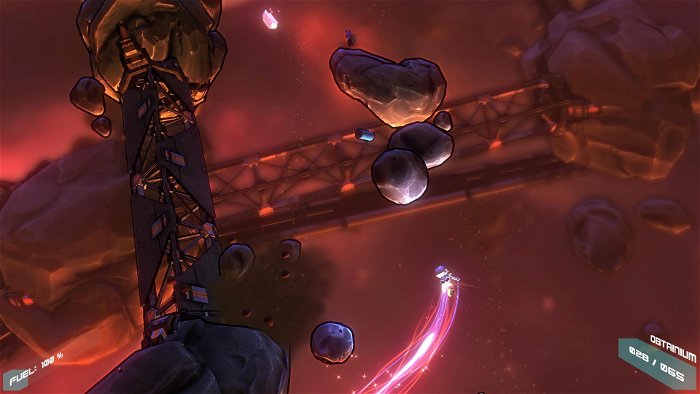
Harrison is an intergalactic mechanic that finds himself stranded on the edge of known space when his ship is destroyed during an EVA repair mission. He befriends an AI probe calling itself “Null,” and with that, attempts to return home in arcade-racing fashion. The game is told from the point of view of Null who is channeling some serious Rucks or Transistor constant voice over. Pixelnauts are clearly big fans of Supergiant Games, and their imitation, while not as witty or insightful as Supergiant’s writer Greg Kasavin, still manages to add a surprising amount of depth and humanity to what should be a twitch-y, no-brainer, arcade experience.
They’ve also managed to make a good technical impression with a 2.5D scrolling environment that fills space with a lot of color and a nice, steady framerate despite the frenzy of speed and activity that regularly occurs in the game. The sound is good too, with appropriate audio effects for all the thrusts and turbo boosting, although the music will be either nostalgic or grate in the extreme depending on your feelings towards 90s era, Euro-style dance and techno. It’s reminiscent of what older gamers might recall hearing on the “title page” of hacked games announcing which European group had obliterated the copyright protection. But the pretty colours and bass heavy soundtrack are all just window dressing for what amounts to an exercise in hand/eye coordination that hearkens back to the age when playing games meant testing your reflexes in an arcade.
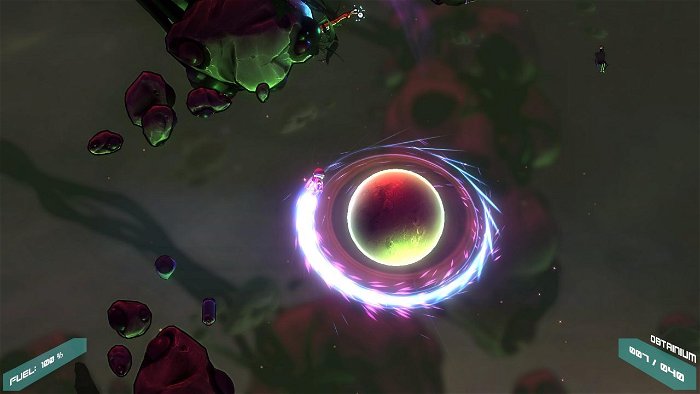
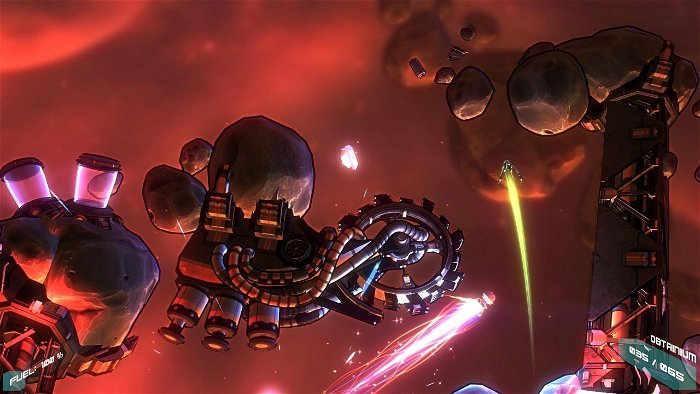
And it IS a twitchy, arcade experience; enjoyably so. The whole point of this vertically scrolling game is to make your way to the end of the level while avoiding obstacles and utilizing various level features such as wormholes, jump pads and, most frequently, orbiting micro-planets to utilize the gravity “sling-shot” effect to speed you on your way. This falls squarely in the “easy to play, difficult to master” category. Anyone playing slowly and carefully can reach the end of a level with little trouble. That, however, is missing the entire point of the game, which rewards players with in-game currency for leveling up various tools based on how fast the level was completed, how few deaths were incurred, and how much “Obtainium” (said in-game currency) was nabbed during the run.
By spending Obtainium, players can add barrel rolls, jet pack boosts and even bombs to their repertoire of abilities, all dedicated to helping maintain high speeds without having to backtrack or slowly circumvent tricky areas. It’s limited in what it does, but the few RPG elements and level features they use are implemented well. It’s also not a game you’ll want to marathon for hours and hours—arcade games rarely hold up to that kind of scrutiny—but, there’s fun to be had in the simple, repetitive nature of the game.
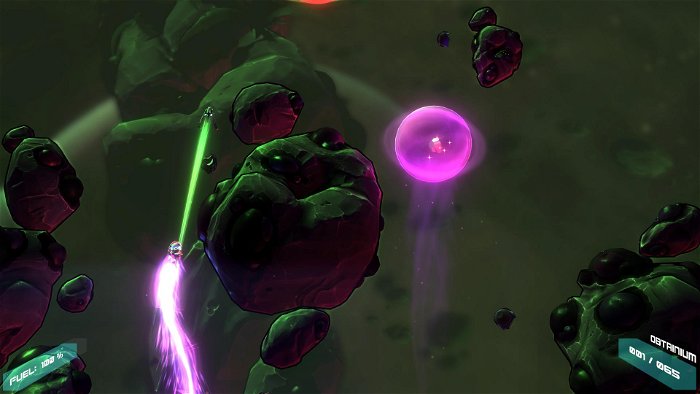
As with most modern arcade style games, there are infinite lives, so you don’t have to worry about staring at a “Press X to continue” screen, and the game keeps track of your deaths. When you pass by that asteroid that turned you into cream corn on your last try, you’ll see your blood splattered all over it, a blackly humorous touch.
As with good arcade experiences, the constant need to speed up, turn, avoid, or utilize level features at break neck speeds all conspire to make your moves instinctual. It’s possible to get “in the zone,” with this game, where you hit that Zen state where your hands know what to do faster than your brain does. This is obviously not a game for those looking for a substantial, meaty narrative adventure—that’s what The Witcher III is for—but for people looking for a simpler, adrenaline junkie experience that appeals to the reptilian hindbrain, Lost Orbit will provide that in short bursts. For leaderboard and time trial junkies, this has everything you need. At $12, it’s not an expensive game, with the presentation and hectic gameplay justifying the modest price.
